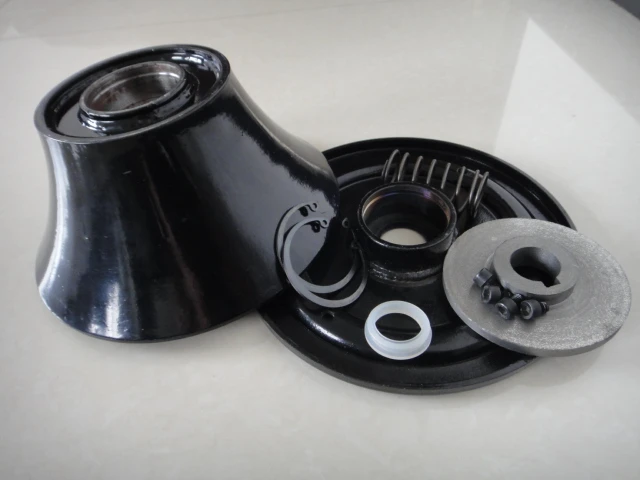 Afrikaans
Afrikaans  Albanian
Albanian  Amharic
Amharic  Arabic
Arabic  Armenian
Armenian  Azerbaijani
Azerbaijani  Basque
Basque  Belarusian
Belarusian  Bengali
Bengali  Bosnian
Bosnian  Bulgarian
Bulgarian  Catalan
Catalan  Cebuano
Cebuano  Corsican
Corsican  Croatian
Croatian  Czech
Czech  Danish
Danish  Dutch
Dutch  English
English  Esperanto
Esperanto  Estonian
Estonian  Finnish
Finnish  French
French  Frisian
Frisian  Galician
Galician  Georgian
Georgian  German
German  Greek
Greek  Gujarati
Gujarati  Haitian Creole
Haitian Creole  hausa
hausa  hawaiian
hawaiian  Hebrew
Hebrew  Hindi
Hindi  Miao
Miao  Hungarian
Hungarian  Icelandic
Icelandic  igbo
igbo  Indonesian
Indonesian  irish
irish  Italian
Italian  Japanese
Japanese  Javanese
Javanese  Kannada
Kannada  kazakh
kazakh  Khmer
Khmer  Rwandese
Rwandese  Korean
Korean  Kurdish
Kurdish  Kyrgyz
Kyrgyz  Lao
Lao  Latin
Latin  Latvian
Latvian  Lithuanian
Lithuanian  Luxembourgish
Luxembourgish  Macedonian
Macedonian  Malgashi
Malgashi  Malay
Malay  Malayalam
Malayalam  Maltese
Maltese  Maori
Maori  Marathi
Marathi  Mongolian
Mongolian  Myanmar
Myanmar  Nepali
Nepali  Norwegian
Norwegian  Norwegian
Norwegian  Occitan
Occitan  Pashto
Pashto  Persian
Persian  Polish
Polish  Portuguese
Portuguese  Punjabi
Punjabi  Romanian
Romanian  Russian
Russian  Samoan
Samoan  Scottish Gaelic
Scottish Gaelic  Serbian
Serbian  Sesotho
Sesotho  Shona
Shona  Sindhi
Sindhi  Sinhala
Sinhala  Slovak
Slovak  Slovenian
Slovenian  Somali
Somali  Spanish
Spanish  Sundanese
Sundanese  Swahili
Swahili  Swedish
Swedish  Tagalog
Tagalog  Tajik
Tajik  Tamil
Tamil  Tatar
Tatar  Telugu
Telugu  Thai
Thai  Turkish
Turkish  Turkmen
Turkmen  Ukrainian
Ukrainian  Urdu
Urdu  Uighur
Uighur  Uzbek
Uzbek  Vietnamese
Vietnamese  Welsh
Welsh  Bantu
Bantu  Yiddish
Yiddish  Yoruba
Yoruba  Zulu
Zulu polyurethane conveyor rollers
The Advantages of Polyurethane Conveyor Rollers in Industrial Applications
In the world of industrial manufacturing and materials handling, conveyor systems play a crucial role in ensuring efficient movement of goods. One of the key components of these systems is the conveyor roller, which helps to support and transport materials along the conveyor belt. Among the various types of rollers available, polyurethane conveyor rollers have emerged as a favored choice for many industries. This article explores the advantages and applications of polyurethane conveyor rollers.
Polyurethane, a versatile polymer known for its robust properties, has increasingly found its way into the manufacturing of conveyor rollers. One of the primary benefits of using polyurethane is its exceptional durability. Polyurethane rollers exhibit an impressive resistance to wear and tear compared to traditional materials, such as rubber or steel. This durability not only extends the lifespan of the rollers but also reduces the frequency of replacements, leading to lower maintenance costs over time.
Another significant advantage of polyurethane conveyor rollers is their ability to withstand harsh environmental conditions
. These rollers are highly resistant to chemicals, oils, and various types of solvents, making them ideal for industries such as food processing, pharmaceuticals, and manufacturing, where exposure to abrasive substances is common. Additionally, polyurethane remains effective in a wide temperature range, ensuring consistent performance in both hot and cold environments.The flexibility and resilience of polyurethane also enable better load distribution across the roller surface. This property allows for smooth operation, reducing the risk of product damage during transportation. In sectors where fragile materials are being moved, such as glass or electronics, the cushioning effect of polyurethane rollers can prevent costly breakages, enhancing overall operational efficiency.
polyurethane conveyor rollers

Polyurethane conveyor rollers are also lightweight compared to their steel counterparts, which translates to easier handling and installation. This feature is particularly beneficial in systems that require frequent adjustments or where weight restrictions apply. Moreover, lighter rollers can contribute to lower energy consumption in conveyor systems, as they place less strain on motors, ultimately leading to cost savings.
Another aspect worth mentioning is the noise reduction capabilities of polyurethane rollers. Unlike metal rollers, which can produce significant noise levels during operation, polyurethane provides a quieter solution, creating a more pleasant work environment. This is especially important in settings where noise regulation is strict or in operations that take place in close proximity to workers.
Further enhancing their appeal, polyurethane conveyor rollers can be customized to meet specific operational requirements. Manufacturers offer a variety of sizes, profiles, and hardness levels, allowing industries to tailor their solutions for particular applications. Whether a company needs rollers for high-speed conveyor systems, heavy-duty operations, or precision handling of delicate items, the versatility of polyurethane makes it an adaptable choice.
In summary, polyurethane conveyor rollers represent a significant advancement in the field of materials handling. Their durability, chemical resistance, load-distribution capabilities, lightweight design, noise reduction, and customization options make them an ideal choice for a wide range of industrial applications. As the logistics and manufacturing sectors continue to evolve, the demand for efficient and reliable conveyor systems will increase, and polyurethane rollers are poised to play a vital role in meeting those needs. Investing in high-quality polyurethane conveyor rollers can lead to improved productivity, reduced operational costs, and enhanced safety in the workplace.
-
Revolutionizing Conveyor Reliability with Advanced Rubber Lagging PulleysNewsJul.22,2025
-
Powering Precision and Durability with Expert Manufacturers of Conveyor ComponentsNewsJul.22,2025
-
Optimizing Conveyor Systems with Advanced Conveyor AccessoriesNewsJul.22,2025
-
Maximize Conveyor Efficiency with Quality Conveyor Idler PulleysNewsJul.22,2025
-
Future-Proof Your Conveyor System with High-Performance Polyurethane RollerNewsJul.22,2025
-
Driving Efficiency Forward with Quality Idlers and RollersNewsJul.22,2025





























